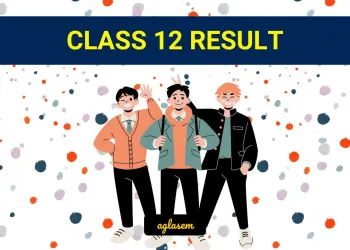NCERT Solutions for Class 12 English Chapter 1 Chandalika has been published by Aglasem. You can now download the Class 12 English Ch 1 Questions and Answers PDF here. This NCERT Solutions for Class 12 English contains answers of all questions asked in Chapter 1 in textbook, Kaleidoscope. Therefore you can refer it to solve Chandalika exercise questions and learn more about the topic.
NCERT Solutions for Class 12 English Chapter 1 Chandalika
Class – Class 12
Subject – English
Chapter – Ch 1
Chapter Name – Chandalika
Book – Kaleidoscope
Study Material – NCERT Solutions
NCERT Solutions for Class 12 English Chapter 1 PDF
While you can read NCERT Solutions for Class 12 English Ch 1 for all exercises here on aglasem. You can also download this NCERT Solutions PDF to refer at anytime when you study Chandalika. Here it is.
NCERT Solutions for Class 12 English Chapter 1 PDF Download Link – Click Here to Download Solutions PDF
How to download NCERT Solutions for Class 12 English Chapter 1 PDF?
You can download the complete NCERT solutions for chapter 1 of this NCERT Book i.e. Kaleidoscope with following steps.
- First search NCERT Solutions for Class 12 English Ch 1 PDF aglasem and come to this page.
- Now you will see the exercise questions answers of Chandalika and download pdf link on it.
- Click the Download PDF link to obtain the Chandalika questions with answers document.
NCERT Solutions for Class 12 English
There are more chapters to study besides Chandalika in this subject. So here are NCERT solutions for all topics of English taught in 12th class here at aglasem.
Flamingo
- Prose
- Chapter 1 The Last Lesson
- Chapter 2 Lost Spring
- Chapter 3 Deep Water
- Chapter 4 The Rattrap
- Chapter 5 Indigo
- Chapter 6 Poets And Pancakes
- Chapter 7 The Interview
- Chapter 8 Going Places
- Poems
- Chapter 1 My Mother At Sixty-six
- Chapter 2 Keeping Quiet
- Chapter 3 A Thing Of Beauty
- Chapter 4 A Roadside Stand
- Chapter 5 Aunt Jennifer’s Tigers
Kaleidoscope
- Short Stories
- Chapter 1 I Sell My Dreams
- Chapter 2 Eveline
- Chapter 3 A Wedding In Brownsville
- Chapter 4 Tomorrow
- Chapter 5 One Centimetre
- Poetry
- Chapter 1 A Lecture Upon The Shadow
- Chapter 2 Poems By Milton
- Chapter 3 Poems By Blake
- Chapter 4 Kubla Khan
- Chapter 5 Trees
- Chapter 6 The Wild Swans Of Coole
- Chapter 7 Time And Time Again
- Chapter 8 Blood
- Non Fiction
- Chapter 1 Freedom
- Chapter 2 The Mark On The Wall
- Chapter 3 Film-making
- Chapter 4 Why The Novel Matters
- Chapter 5 The Argumentative Indian
- Chapter 6 On Science Fiction
- Drama
- Chapter 1 Chandalika
- Chapter 2 Broken Images
Vistas Supplementary Reader
- Chapter 1 The Third Level
- Chapter 2 The Tiger King
- Chapter 3 Journey To The End Of Earth
- Chapter 4 The Enemy
- Chapter 5 On The Face Of It
- Chapter 6 Memories Of Childhood
NCERT Solutions for Class 12
Just like you got English Ch 1 solutions here. You can see exercise questions answers of other subjects and their topics too on aglasem. Here are NCERT solutions for all subjects of 12th standard NCERT books.
- NCERT Solutions for Class 12 Accountancy
- NCERT Solutions for Class 12 Biology
- NCERT Solutions for Class 12 Business Studies
- NCERT Solutions for Class 12 Chemistry
- NCERT Solutions for Class 12 Economics
- NCERT Solutions for Class 12 English
- NCERT Solutions for Class 12 Geography
- NCERT Solutions for Class 12 Hindi
- NCERT Solutions for Class 12 History
- NCERT Solutions for Class 12 Maths
- NCERT Solutions for Class 12 Physics
- NCERT Solutions for Class 12 Political Science
- NCERT Solutions for Class 12 Psychology
- NCERT Solutions for Class 12 Sociology
NCERT Solutions for Class 12 English Chapter 1 – An Overview
The key highlights of this study material are as follows.
| Aspects | Details |
|---|---|
| Class | Class 12 |
| Subject | English |
| Chapter Number | Ch 1 |
| Chapter Name | Chandalika |
| Book Name | Kaleidoscope |
| Book By | NCERT (National Council of Educational Research and Training) |
| Educational Resource Here | NCERT Solutions of Class 12 English Ch 1 for All Exercise |
| More Questions Answers of This Subject | NCERT Solutions for Class 12 English |
| Download Book Chapter PDF | NCERT Book Class 12 English Chapter 1 |
| All Questions Answers For This Class | NCERT Solutions for Class 12 |
| Complete Solutions | NCERT Solutions |
If you have any queries on NCERT Solutions for Class 12 English Chapter 1 Chandalika, then please ask in comments below.
To get study material, exam alerts and news, join our Whatsapp Channel.









